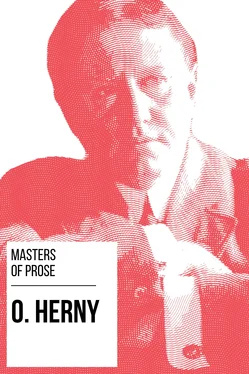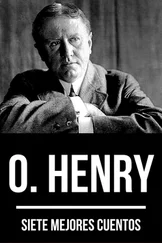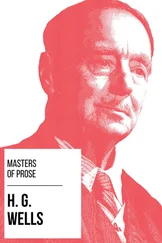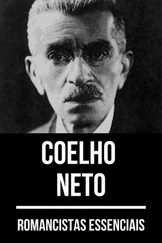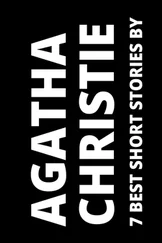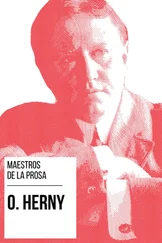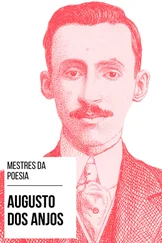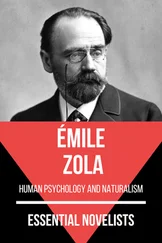The look stung the adventurer. He read in it a silent accusation that he had been found wanting. Whatever the mysterious written words on the cards might mean, the black had selected him twice from the throng for their recipient; and now seemed to have condemned him as deficient in the wit and spirit to engage the enigma.
Standing aside from the rush, the young man made a rapid estimate of the building in which he conceived that his adventure must lie. Five stories high it rose. A small restaurant occupied the basement.
The first floor, now closed, seemed to house millinery or furs. The second floor, by the winking electric letters, was the dentist's. Above this a polyglot babel of signs struggled to indicate the abodes of palmists, dressmakers, musicians and doctors. Still higher up draped curtains and milk bottles white on the window sills proclaimed the regions of domesticity.
After concluding his survey Rudolf walked briskly up the high flight of stone steps into the house. Up two flights of the carpeted stairway he continued; and at its top paused. The hallway there was dimly lighted by two pale jets of gas—one far to his right, the other nearer, to his left. He looked toward the nearer light and saw, within its wan halo, a green door. For one moment he hesitated; then he seemed to see the contumelious sneer of the African juggler of cards; and then he walked straight to the green door and knocked against it.
Moments like those that passed before his knock was answered measure the quick breath of true adventure. What might not be behind those green panels! Gamesters at play; cunning rogues baiting their traps with subtle skill; beauty in love with courage, and thus planning to be sought by it; danger, death, love, disappointment, ridicule—any of these might respond to that temerarious rap.
A faint rustle was heard inside, and the door slowly opened. A girl not yet twenty stood there, white-faced and tottering. She loosed the knob and swayed weakly, groping with one hand. Rudolf caught her and laid her on a faded couch that stood against the wall. He closed the door and took a swift glance around the room by the light of a flickering gas jet. Neat, but extreme poverty was the story that he read.
The girl lay still, as if in a faint. Rudolf looked around the room excitedly for a barrel. People must be rolled upon a barrel who—no, no; that was for drowned persons. He began to fan her with his hat. That was successful, for he struck her nose with the brim of his derby and she opened her eyes. And then the young man saw that hers, indeed, was the one missing face from his heart's gallery of intimate portraits. The frank, grey eyes, the little nose, turning pertly outward; the chestnut hair, curling like the tendrils of a pea vine, seemed the right end and reward of all his wonderful adventures. But the face was wofully thin and pale.
The girl looked at him calmly, and then smiled.
"Fainted, didn't I?" she asked, weakly. "Well, who wouldn't? You try going without anything to eat for three days and see!"
"Himmel!" exclaimed Rudolf, jumping up. "Wait till I come back."
He dashed out the green door and down the stairs. In twenty minutes he was back again, kicking at the door with his toe for her to open it. With both arms he hugged an array of wares from the grocery and the restaurant. On the table he laid them—bread and butter, cold meats, cakes, pies, pickles, oysters, a roasted chicken, a bottle of milk and one of red-hot tea.
"This is ridiculous," said Rudolf, blusteringly, "to go without eating. You must quit making election bets of this kind. Supper is ready." He helped her to a chair at the table and asked: "Is there a cup for the tea?" "On the shelf by the window," she answered. When he turned again with the cup he saw her, with eyes shining rapturously, beginning upon a huge Dill pickle that she had rooted out from the paper bags with a woman's unerring instinct. He took it from her, laughingly, and poured the cup full of milk. "Drink that first" he ordered, "and then you shall have some tea, and then a chicken wing. If you are very good you shall have a pickle to-morrow. And now, if you'll allow me to be your guest we'll have supper."
He drew up the other chair. The tea brightened the girl's eyes and brought back some of her colour. She began to eat with a sort of dainty ferocity like some starved wild animal. She seemed to regard the young man's presence and the aid he had rendered her as a natural thing—not as though she undervalued the conventions; but as one whose great stress gave her the right to put aside the artificial for the human. But gradually, with the return of strength and comfort, came also a sense of the little conventions that belong; and she began to tell him her little story. It was one of a thousand such as the city yawns at every day—the shop girl's story of insufficient wages, further reduced by "fines" that go to swell the store's profits; of time lost through illness; and then of lost positions, lost hope, and—the knock of the adventurer upon the green door.
But to Rudolf the history sounded as big as the Iliad or the crisis in "Junie's Love Test."
"To think of you going through all that," he exclaimed.
"It was something fierce," said the girl, solemnly.
"And you have no relatives or friends in the city?"
"None whatever."
"I am all alone in the world, too," said Rudolf, after a pause.
"I am glad of that," said the girl, promptly; and somehow it pleased the young man to hear that she approved of his bereft condition.
Very suddenly her eyelids dropped and she sighed deeply.
"I'm awfully sleepy," she said, "and I feel so good."
Then Rudolf rose and took his hat. "I'll say good-night. A long night's sleep will be fine for you."
He held out his hand, and she took it and said "good-night." But her eyes asked a question so eloquently, so frankly and pathetically that he answered it with words.
"Oh, I'm coming back to-morrow to see how you are getting along. You can't get rid of me so easily."
Then, at the door, as though the way of his coming had been so much less important than the fact that he had come, she asked: "How did you come to knock at my door?"
He looked at her for a moment, remembering the cards, and felt a sudden jealous pain. What if they had fallen into other hands as adventurous as his? Quickly he decided that she must never know the truth. He would never let her know that he was aware of the strange expedient to which she had been driven by her great distress.
"One of our piano tuners lives in this house," he said. "I knocked at your door by mistake."
The last thing he saw in the room before the green door closed was her smile.
At the head of the stairway he paused and looked curiously about him. And then he went along the hallway to its other end; and, coming back, ascended to the floor above and continued his puzzled explorations. Every door that he found in the house was painted green.
Wondering, he descended to the sidewalk. The fantastic African was still there. Rudolf confronted him with his two cards in his hand.
"Will you tell me why you gave me these cards and what they mean?" he asked.
In a broad, good-natured grin the negro exhibited a splendid advertisement of his master's profession.
"Dar it is, boss," he said, pointing down the street. "But I 'spect you is a little late for de fust act."
Looking the way he pointed Rudolf saw above the entrance to a theatre the blazing electric sign of its new play, "The Green Door."
"I'm informed dat it's a fust-rate show, sah," said the negro. "De agent what represents it pussented me with a dollar, sah, to distribute a few of his cards along with de doctah's. May I offer you one of de doctah's cards, sah?"
At the corner of the block in which he lived Rudolf stopped for a glass of beer and a cigar. When he had come out with his lighted weed he buttoned his coat, pushed back his hat and said, stoutly, to the lamp post on the corner:
Читать дальше
